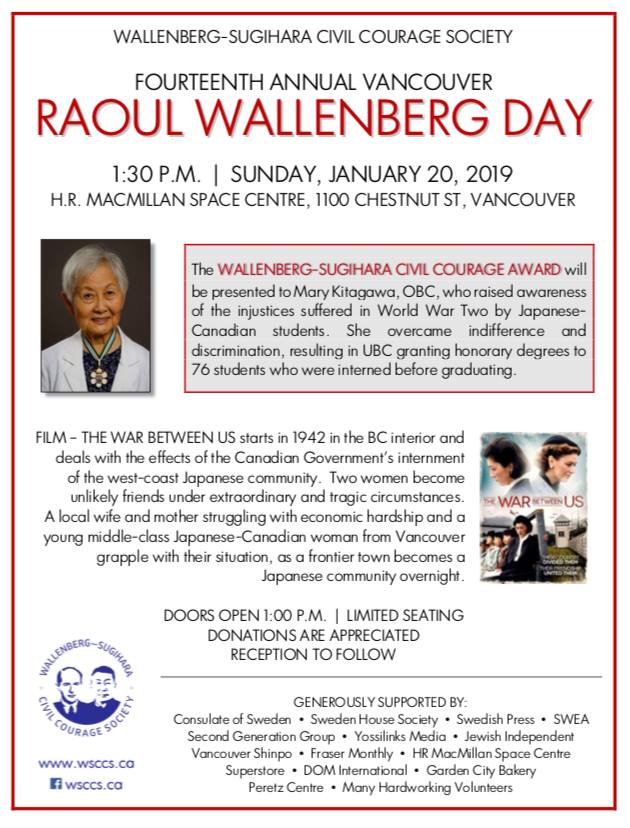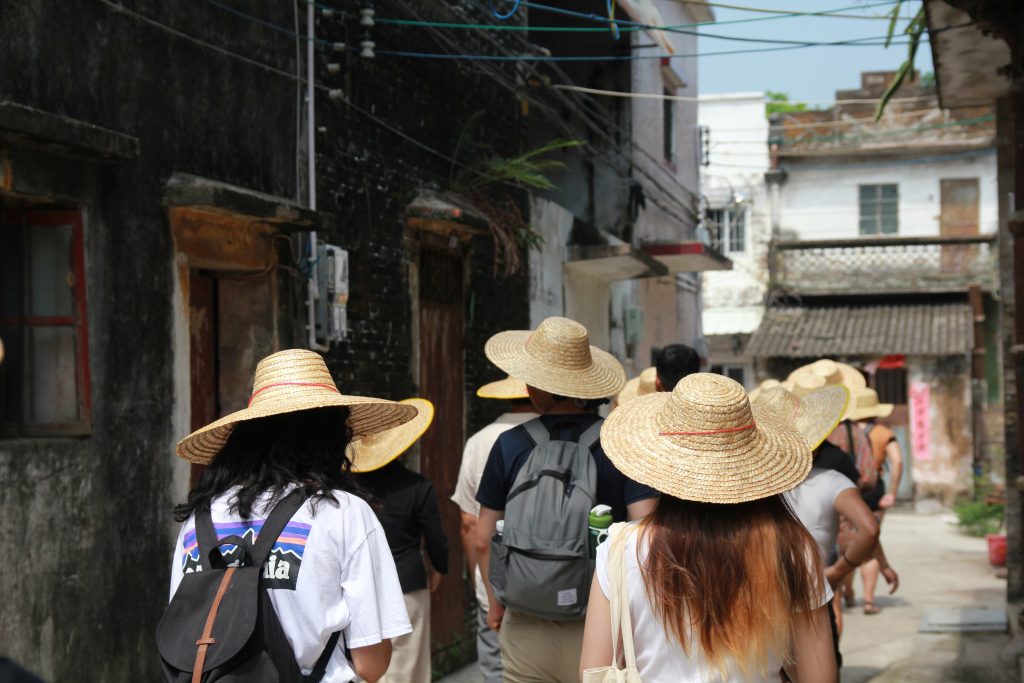A Crusader for Human Rights
Vancouver-based Wallenberg-Sugihara Civil Courage Society honours Mary Kitagawa

On January 20, the Vancouver-based Wallenberg-Sugihara Civil Courage Society will present the 2019 Wallenberg-Sugihara Civil Courage Award to Mary Kitagawa, who raised awareness of the injustices suffered by Japanese-Canadian students during the Second World War. Among other things, her fight against discrimination resulted in the University of British Columbia, in 2012, granting honorary degrees to 76 students who were interned before they were able to finish their degrees.
Kitagawa received the Order of British Columbia last fall. The educator is described as a “crusader for human rights who has helped dismantle society’s systems of racial apartheid and legalized discrimination, create a more inclusive and just world, and demonstrate it is never too late to make right a wrong.”
The OBC website notes, “Kitagawa and her family were among the more than 22,000 Canadians of Japanese descent incarcerated during the Second World War. As a result of the injustices her family endured, she became an advocate for human rights, maintaining a sustained focus to raise the problem of injustice due to racism and intolerance.
“She continues to advocate for the inclusion of curriculum about the incarceration in elementary and high schools and is a member of the Community Council of the Landscapes of Injustice, a University of Victoria project which is recovering documents related to the confiscation and disposal of Japanese Canadian properties.”
For more information on Kitagawa’s work check the Order of British Columbia website.
The Wallenberg-Sugihara Civil Courage Award is given annually to an individual associated with British Columbia who at significant personal risk helped to improve the lives of others while defying unjust laws or norms, past or present. It pays tribute to courageous actions by diplomats Raoul Wallenberg of Sweden and Chiune Sugihara of Japan. During the Second World War, they engaged in selfless acts of civil courage, at grave risk to themselves, their families and their future, to rescue Jews during the Holocaust. Their stories inspire Canadians to act with courage and live by their moral values.
This year’s event and reception will be held at the MacMillan Space Centre on Jan.20, 1:30 p.m. In addition to remarks from Kitagawa, it will include a screening of the feature film The War Between Us, which dramatizes the interaction between Japanese internees and their neighbours in the B.C. Interior during the Second World War.
Entrance is free; donations are appreciated. For more information, visit wsccs.ca.
 Faculty of Art
Faculty of Art
 The faculty, staff and students of the Asian Canadian and Asian Migration Studies Program are deeply saddened by the passing of Dr. Anthony (Tony) B. Chan on June 3, 2018. Dr. Chan was a pioneering figure in Asian Canadian Studies, a widely-respected academic leader and filmmaker, and community activist. A third-generation Chinese Canadian born in Victoria, he attended the University of Victoria and York University, where he received his PhD in History. After a career as a broadcast journalist in Canada and Hong Kong, he returned to academia and taught for many years at the University of Washington, where he directed the Canadian Studies Centre, and more recently at the University of Ontario Institute of Technology, where he was Professor and Associate Dean of Communication in the Faculty of Education.
The faculty, staff and students of the Asian Canadian and Asian Migration Studies Program are deeply saddened by the passing of Dr. Anthony (Tony) B. Chan on June 3, 2018. Dr. Chan was a pioneering figure in Asian Canadian Studies, a widely-respected academic leader and filmmaker, and community activist. A third-generation Chinese Canadian born in Victoria, he attended the University of Victoria and York University, where he received his PhD in History. After a career as a broadcast journalist in Canada and Hong Kong, he returned to academia and taught for many years at the University of Washington, where he directed the Canadian Studies Centre, and more recently at the University of Ontario Institute of Technology, where he was Professor and Associate Dean of Communication in the Faculty of Education.